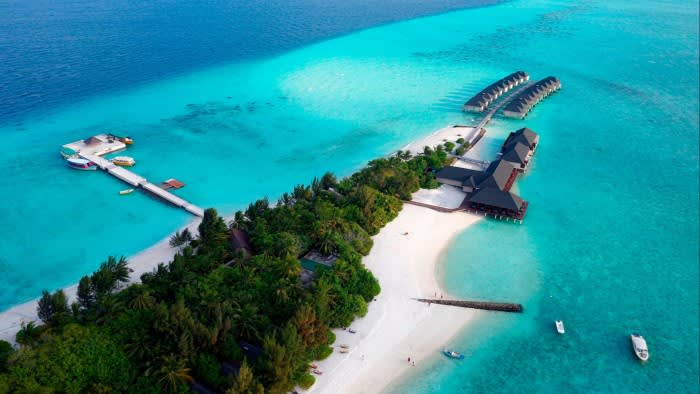Stay informed with free updates
Simply sign up to the Sovereign bonds myFT Digest — delivered directly to your inbox.
India has given the Maldives a bailout that will help the island nation avoid an unprecedented sovereign default on an Islamic form of debt next month.
India’s biggest state-owned bank agreed to lend another $50mn to the Maldives, India’s high commission in the country said in a statement late on Thursday, days before the archipelago is due to pay a roughly $25mn coupon on an Islamic sukuk.
Sukuk follow Islamic principles in shunning traditional interest payments and instead offer creditors a share of profit from an underlying financial instrument.
No government has ever skipped a sukuk payment, but investors have grown concerned in recent weeks that the Maldives would break new ground in a market tapped by countries including Egypt, Pakistan, South Africa and the UK.
Heavy borrowing for infrastructure projects has plunged the Maldives deep into a foreign exchange crisis despite a recovery in tourism to the island paradise.
The Maldivian sukuk traded at about 78 cents in the dollar on Friday, a recovery from a low of 70 cents after Fitch Ratings downgraded the country’s credit rating deep into junk territory this month.
The State Bank of India, which had previously lent the Maldives $50mn, also rolled over a short-term bond in May, underlining how the archipelago is relying on stop-gap rescues by New Delhi while the government of President Mohamed Muizzu looks for a lasting solution to the crisis.
The country still has to find a way to repay more than $500mn in debt next year, and $1bn in 2026, when the $500mn sukuk will come due.
The loan from the SBI, which has taken the form of rolling over a one-year treasury bill, is bigger than the Maldives’ net international reserves as of last month.
These dwindled to $48mn, out of gross reserves of $470mn, as the country faces high debt repayment bills and keeps up the rufiyaa currency’s peg to the dollar. India is one of the country’s biggest creditors, alongside China.
“These subscriptions have been made at the special request of the government of the Maldives as emergency financial assistance,” the Indian high commission said. The new T-bill would carry no interest payments, it added.
Muizzu campaigned for the Maldivian presidency last year on a pledge to reduce Indian influence in the archipelago, leading to an early spat with the government of Narendra Modi.
But the two countries have rebuilt ties as the Maldivian financial crisis has deepened. Muizzu’s office has said that he plans to visit Modi in New Delhi soon.
The government has said that it is also seeking a $400mn currency swap arrangement with India through a south Asian regional body.
This month the Chinese central bank said it had signed a memorandum of understanding with the Maldives to facilitate the settlement of trade in local currencies, in another sign of support.
https://www.ft.com/content/f2a2e04b-daff-4bb7-995f-0f3f18feb656


